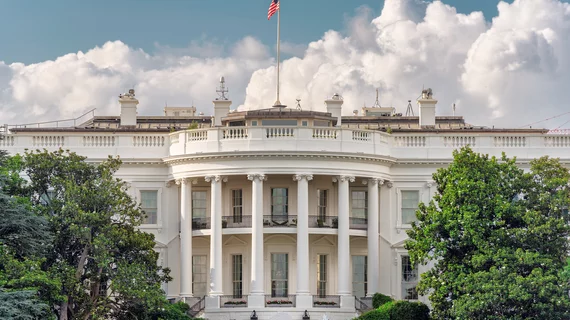Trump’s move to withdraw from WHO puts America’s health at ‘grave risk,’ leading medical groups warn
A handful of major healthcare associations released a statement Tuesday criticizing the Trump Administration’s recent move to formally withdraw the United States from the World Health Organization.
The presidents of four leading healthcare associations—representing the American Medical Association, American Academy of Pediatrics, American Academy of Family Physicians and American College of Physicians—said Trump’s decision would be a major blow to public health around the globe, and especially consequential in the face of the ongoing pandemic.
"The Trump administration's official withdrawal from the World Health Organization puts the health of our country at grave risk. As leading medical organizations, representing hundreds of thousands of physicians, we join in strong opposition to this decision, which is a major setback to science, public health, and global coordination efforts needed to defeat COVID-19,” according to the organizations.
The U.S. State Department sent notice to the U.N. on July 6 that it intends to sever its 72-year membership in the WHO, the Wall Street Journal reported Tuesday. Trump first made his intentions known during a speech in the Rose Garden at the White House on May 29, where he criticized China and WHO’s role in spreading COVID-19.
Trump said the actions stemming from the COVID-19 outbreak influenced his decision, and he stated China misled world leaders about the outbreak.
“Chinese officials ignored their reporting obligations to the World Health Organization and pressured the World Health Organization to mislead the world when the virus was first discovered by Chinese authorities,” Trump said during the speech.
The exit would not take effect until July 2021. Democratic presidential nominee Joe Biden said Tuesday the U.S. would remain a member if he wins in November, WSJ reported.

